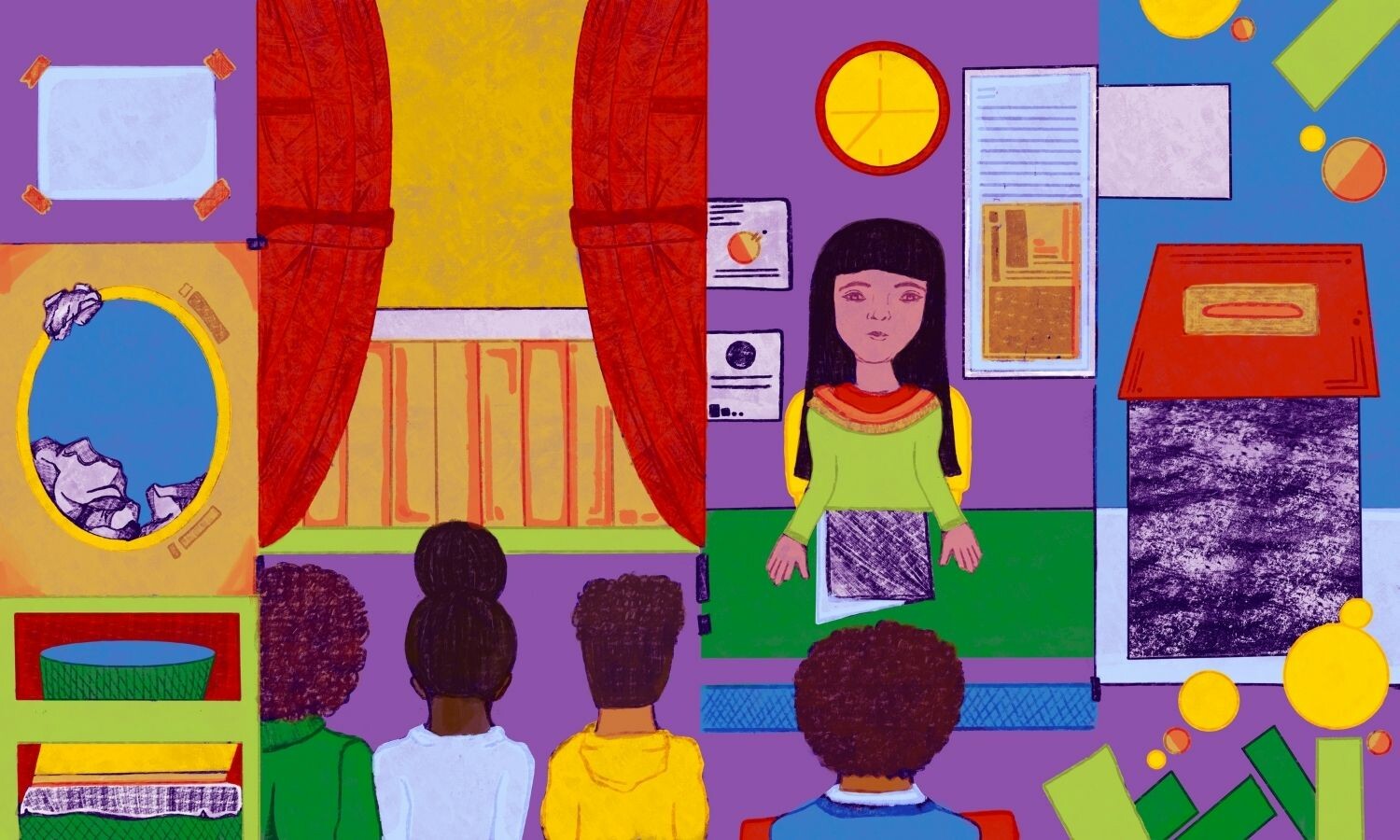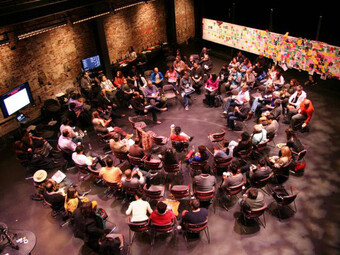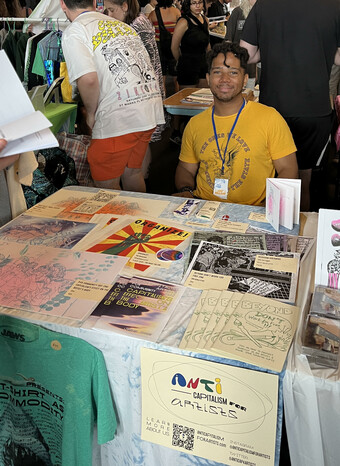Oftentimes, when we look back on our past, we are appalled and horrified at what our predecessors said and did. We say, “I would never have done that!” And then we feel better about what we are doing today because we have distanced ourselves from what our relatives did yesterday.
Now, in 2021—in the midst of a global pandemic, and following a summer of social justice progress inspired by Black Lives Matter, a summer then immediately followed by an insanely troubling attack on our democracy led by individuals who refuse to accept the results of an election where voters of color came out in record numbers to support progressive candidates—we find ourselves at a crossroads. This past summer, our communities demanded accountability for the historic figures we revere and hold in high regard, as we witnessed the toppling of numerous statues of Christopher Columbus and Confederate Army generals, and many others who promoted genocide and slavery.
So I ask my fellow American theatre colleagues: Will the American theatre follow suit? Or will we continue to exclusively promote whitewashed narratives that perpetuate the historic approval for the slavery and genocide that our white leaders promoted? For those of us who are citizens of Tribal Nations that pre-date the creation of the United States, we have waited generations to watch our fellow Americans ask these important questions.
As we look to our future, I truly believe, as a Cherokee woman and author, that the American theatre will arrive at a place where theatre practitioners place a greater value on the authentic stories of American Indians than the stories that romanticize the American leaders who successfully killed and murdered us. But so far the American theatre has attributed greater value to celebrating the leaders who sought our extermination than our own Native leaders who ensured our survival.
As we look back on the last year’s events, and as we collectively recognize that we must change and discard the narratives that supported the 6 January insurrection, I predict that the American theatre will devise a future where theatrical storytelling does not directly contribute to white supremacy. The American theatre will do this in four main ways.
So far the American theatre has attributed greater value to celebrating the leaders who sought our extermination than our own Native leaders who ensured our survival.
First: By retiring performances such as Bloody Bloody Andrew Jackson that use redface to dehumanize Native Americans. Shows like this that dehumanize Natives won’t be “cancelled” because of their racism (or it would have happened by now). Instead, they will fade away from the stage because there will be no commercial appetite compelling their production. It is true that redface has been insanely popular with white audiences ever since its creation on the Broadway stage in the late 1820s (when Jackson won the presidency based on a promise he would exterminate Tribal Nations and their citizens). But the Americans who have enjoyed and used redface over the last several decades have never understood its origins or when the performance became popular and why.
This, however, is already beginning to change. Just this past summer, as the Black Lives Matter movement began to raise the collective consciousness of America, several corporations decided they would no longer sponsor the Washington Football Team’s use of redface. Suddenly, Dan Snyder, the team’s owner, could no longer afford, economically, to be racist. For purely economic reasons, he decided to finally remove the team’s genocidal “R**skins” name and replace his team’s redface logo with something that does not dehumanize Natives. If Snyder can stop using redface, the “more woke” artistic directors of the American theatre should be able to recognize that America’s appetite for redface is waning. In the future, the use of redface will not be censored. Non-Native artists will still have the right to dehumanize Natives in their plays and musicals, should they choose to do so. But Americans won’t want to see those plays or musicals. Simply put, in the future, redface won’t sell tickets.
Second: By including, instead of erasing, Natives in the telling of our collective histories. Even though Natives were, historically, center stage during the formation of the United States, we are not even mentioned in plays such as Hamilton. I am not suggesting we cancel shows like Hamilton where Natives are not dehumanized but, instead, erased. To be sure, we must keep them. Hamilton is critical to the American theatre because it shattered the myth that artists of color cannot perform intellectual aspects of American history and sell tickets. Hamilton also provided a critical challenge to the current (and racist) dehumanization of immigrants in this country. But Hamilton has been criticized recently for its shallow treatment of slavery. Many of the characters promoted and profited from slavery—namely Thomas Jefferson and George Washington, as well as many others. Hamilton also ignores genocide and erases the contributions our Tribal Nations made to American democracy when founding fathers like Benjamin Franklin took indigenous concepts of local democracy from tribal governments and embedded them in the United States Constitution.










Comments
The article is just the start of the conversation—we want to know what you think about this subject, too! HowlRound is a space for knowledge-sharing, and we welcome spirited, thoughtful, and on-topic dialogue. Find our full comments policy here
Hello, It is very interesting all the environment the theaters have to face from now on that they will be open. I would like to keep reading the articule that it is not finished and find out all the theater structure that needs to be adjust to the new circumstances.
Thanks.